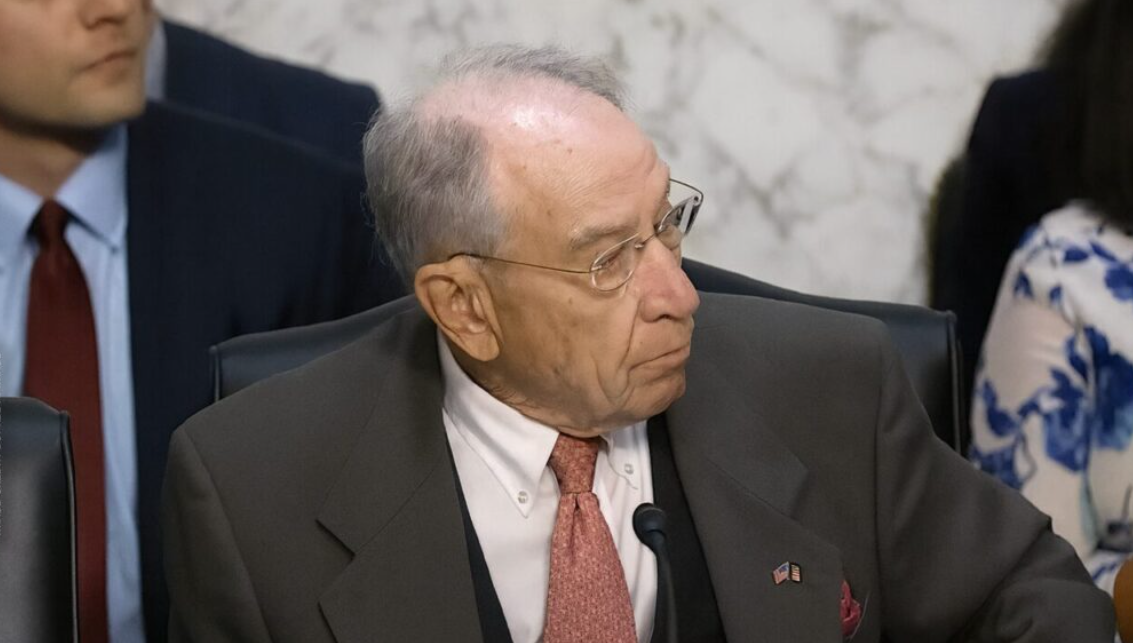Introduction: A Rare GOP Clash Over Senate Norms
Tensions within the Republican Party surfaced this week as Senator Chuck Grassley (R-Iowa) publicly rebuked former President Donald Trump following a string of harsh social media attacks. The dispute centers on the Senate’s “blue slip” tradition — an informal but historically significant custom that allows home-state senators to approve or block judicial and U.S. attorney nominees. Grassley’s firm defense of this practice triggered a rare moment of GOP infighting, illuminating a broader clash between institutional Senate norms and executive ambition.
What Is the Blue Slip Tradition?
The blue slip is a Senate Judiciary Committee custom dating back decades. When the White House nominates a federal judge or U.S. attorney, both senators from the nominee’s state receive a blue-colored approval slip. If either senator withholds or returns a negative blue slip, the committee traditionally refrains from moving the nomination forward. While the practice is not codified by law and can vary depending on the committee chair’s discretion, it serves as a powerful check allowing senators to weigh in on nominees affecting their home states.
Grassley’s Defense: Preserving Senate Independence
As chair of the Judiciary Committee and the Senate’s longest-serving member, Chuck Grassley has long championed the blue slip as essential to maintaining Senate tradition, bipartisanship, and institutional balance. At a recent Judiciary Committee hearing, Grassley expressed disappointment over President Trump’s public attacks on the tradition and on him personally. Grassley emphasized the importance of respecting Senate procedures rather than allowing presidential impatience to erode them.
Trump’s Criticism: Frustration Over Judicial Confirmation Delays
President Trump’s anger centers on perceived obstruction by Senate Democrats, who have stalled many of his judicial nominees through blue slips in certain states. On his social media platform Truth Social, Trump accused Grassley of enabling Democrats like Schumer and others to block “Great Republican Candidates.” Trump called for an end to the blue slip to expedite confirmations, urging Grassley to “solve the problem with a flick of the pen.”
GOP Senators Rally Around Grassley
Grassley found strong allies within the Senate Republican conference. Senator John Kennedy (R-La.) publicly disagreed with Trump’s stance, calling the blue slip a “cherished and very needed Senate tradition.” Kennedy stressed the unique local insight senators have in evaluating judicial nominees and noted the bipartisan benefits of the practice—Republicans have relied on blue slips to block nominees under Democratic administrations as well.
Institutional Norms vs. Executive Will
This conflict highlights the tension between the Senate’s commitment to tradition and the executive branch’s desire for swift action. Senators like Grassley argue that the blue slip safeguards the constitutional system of checks and balances by protecting senatorial prerogatives. Meanwhile, Trump’s leadership style favors aggressive, top-down control, often challenging longstanding institutional customs when they appear to impede political goals.
What’s at Stake?
If the blue slip tradition were weakened or discarded, the Senate’s role in judicial nominations could shift dramatically. The power of home-state senators to vet candidates for local courts ensures that nominees reflect community standards and concerns. Eliminating this tradition might speed confirmations but risks alienating senators and increasing partisan conflicts. Grassley’s insistence on upholding the blue slip demonstrates a desire to preserve the Senate as a deliberative body, resisting pressures to sacrifice tradition for expediency.
Conclusion: Tradition or Transformation?
While President Trump’s criticisms spotlight frustrations over judicial appointments, Senator Grassley’s defense underscores the resilience of Senate customs. The outcome of this debate could set a precedent for how much influence future presidents wield over the Senate’s confirmation process. As this rare GOP infighting continues, the Senate faces a crucial choice: maintain its institutional traditions or yield to executive impatience. For now, Grassley and many Senate Republicans remain steadfast, signaling that some customs endure despite political storms.

Emily Johnson is a critically acclaimed essayist and novelist known for her thought-provoking works centered on feminism, women’s rights, and modern relationships. Born and raised in Portland, Oregon, Emily grew up with a deep love of books, often spending her afternoons at her local library. She went on to study literature and gender studies at UCLA, where she became deeply involved in activism and began publishing essays in campus journals. Her debut essay collection, Voices Unbound, struck a chord with readers nationwide for its fearless exploration of gender dynamics, identity, and the challenges faced by women in contemporary society. Emily later transitioned into fiction, writing novels that balance compelling storytelling with social commentary. Her protagonists are often strong, multidimensional women navigating love, ambition, and the struggles of everyday life, making her a favorite among readers who crave authentic, relatable narratives. Critics praise her ability to merge personal intimacy with universal themes. Off the page, Emily is an advocate for women in publishing, leading workshops that encourage young female writers to embrace their voices. She lives in Seattle with her partner and two rescue cats, where she continues to write, teach, and inspire a new generation of storytellers.









